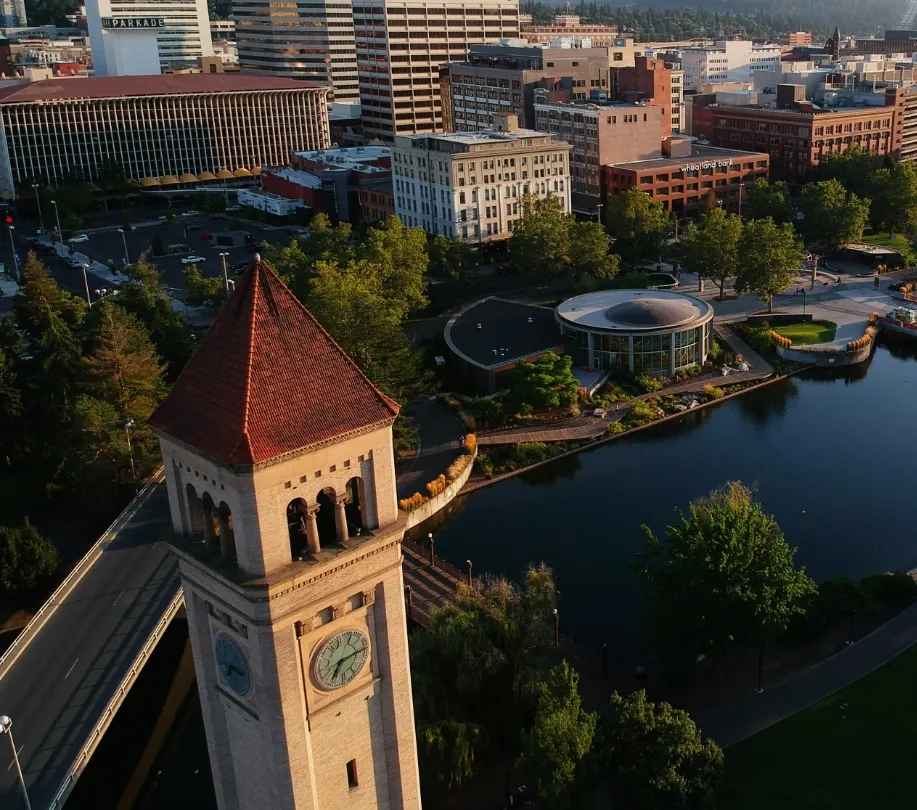Coeur d’Alene Legal Separation Attorney
What is Legal Separation in Idaho?
Separation between a couple can be either informal or legal. An informal separation may also be referred to as a “trial” separation. Those that go through a legal separation will face a process that is similar in nature to a divorce. If you decide you want to file for a legal separation in the state of Idaho, it could be very beneficial to speak to a knowledgeable Coeur d’Alene legal separation attorney before moving forward. With an office located in Coeur d’Alene, our firm serves all of Kootenai County.
30 YEARS OF FIRM EXPERIENCE
FULL-SERVICE FAMILY LAW FIRM
CLIENT-CENTRIC SERVICE
While there are few current statistics regarding separation, according to a survey, published in the Journal of Divorce and Remarriage, only about 9.2 percent of women who went through either a legal or informal separation actually ended up reconciling. About 40 percent of couples who separate attempt to reunite at least once during the separation, while almost 30 percent attempt to reconcile three times or more. The typical duration of a separation is from one week to one month, although many couples stay apart much longer.
The same divorce-related issues can be decided during a legal separation, but the outcomes are only for the duration of the separation. While the reasons a couple may decide on a legal separation are many, some couples choose legal separation to maintain health or tax benefits that would otherwise terminate following a divorce. Others see divorce as too permanent an option, believing there is a chance for reconciliation. Still others have religious or moral grounds for legal separation over a divorce.
Why Choose a Coeur d’Alene Legal Separation Attorney from Crouse Erickson?
The Crouse Erickson Family Law Attorneys have been helping clients with family law issues for 30 years. That’s 30 years of practicing only family law, and 30 years of helping our clients find solutions that are as unique as they are, always looking for the most positive outcome. We understand that family law matters are generally both serious and emotional. You have a lot on the line, whether that’s your children, your family dynamics, your financial future, or your assets.
The complex legal rules and protocols in family law can be frustrating and anxiety-inducing. At Crouse Erickson, our many years of experience across the firm fully prepares us for any eventuality that might arise in your case. We are the attorneys that win because we are the attorneys that put in the most time and effort to make your case a success. While we handle matters as amicably as possible and are highly skilled negotiators, we never hesitate to litigate a case if it is in our clients’ best interests.
Why Choose Legal Separation?
Divorce is not always the inevitable resolution to a rocky marriage. Some couples choose legal separation rather than divorce. There are a number of reasons that a legal separation might be a better first step than a divorce, even if divorce is the inevitable conclusion.
- A legal separation allows one spouse to continue receiving healthcare benefits from his or her spouse’s coverage. Once a couple is divorced, those healthcare benefits cease. If one spouse has significant health issues, the couple may opt for a legal separation to maintain these benefits.
- Legal separation allows both spouses to continue to have rights to property benefits.
- While a divorce cannot be reversed, a legal separation allows spouses to live apart with the option of reconciling later on. If the couple chooses to reconcile, they may ask the court to terminate their legal separation.
- Couples who are legally separated can still make decisions regarding their partner’s medical or financial affairs if their partner became incapacitated.
- A person whose religion does not permit divorce might choose legal separation so they can adhere to their religious rules without living together as a couple.
- A couple that is not on the “same page” regarding their relationship may choose legal separation as a compromise both can live with.
Of course, the negative aspect of a legal separation is that those who are legally separated cannot remarry until they are properly divorced under state laws.
What is the Process for a Legal Separation?
Just as with an Idaho divorce, legal separation requires the filing of paperwork. The process begins when one spouse files a petition for legal separation. This petition will provide the court with contact information, the date of your marriage, and when you began living apart. You will need to meet the Idaho residency requirement, meaning one spouse must have lived in the state for a minimum of six weeks prior to filing for legal separation.
Just as with an Idaho divorce, you can file for a no-fault legal separation, or a fault-based separation, although to keep the process as simple as possible, most choose the no-fault option. There is a 20-day waiting period before the Idaho court can act on your case. It would be wise, during this time, to discuss and come to informal agreements regarding custody, child support, alimony, and property division, keeping in mind that Idaho is a community property state.
This means that all marital assets will be divided down the middle, regardless of who actually paid for those assets. Like a divorce, anything you are unable to agree on will be decided by a judge. Either you or your spouse can terminate the legal separation at any time, filing for divorce. At that time, the separation agreement will be merged into the final divorce decree. If, however, you want to end your legal separation, you must ask the court to vacate the separation agreement.
How Does Legal Separation Affect Child Custody?
If you and your spouse have chosen legal separation, therefore will be living apart, the court will deal with the same issues as if the couple were divorcing. One of those is child custody. The court will examine a number of factors that correspond to the best interests of the child standard to determine custody. Legal custody and physical custody will be considered. Legal custody refers to whether one or both parents will make important decisions for the child, such as those that deal with health, education, or religion. One parent may have sole legal custody, or the parents may share legal custody.
Physical custody can be shared between the parents with the child living part of the time with one parent, and part of the time with the other. This arrangement usually works better for younger children, but once a child is older and begins extracurricular activities, it becomes exponentially more difficult. One parent may be given sole physical custody, with the other having visitation rights. Custody and child support will both be determined during a legal separation. If the legal separation becomes a divorce, the decisions made regarding child custody and child support can merge into the divorce decisions, or one or both parents may ask for alterations. The decisions made by the court will always be in the best interests of the child, based on a set of factors.
What Are the Legal Requirements for a Legal Separation in Idaho?
The legal requirements for a legal separation in the state of Idaho are very similar to those of a divorce in Idaho. You or your spouse must have lived in the state of Idaho for at least six weeks. You will file in the county where that spouse resides, and there is a waiting period of 20 days following the filing. The earnings and accumulations of the wife and the minor children living with her during the legal separation are her separate property in the event of a divorce.
What is the Difference Between a Legal Separation and a Divorce?
Essentially, a divorce and a legal separation in the state of Idaho are very similar. There are a few major differences: Neither spouse can remarry during a legal separation, and you are allowed to stay on your spouse’s health insurance plan during the separation. Many other issues are exactly the same as a divorce. You will decide on maintenance (spousal support), child custody, child support, and the division of assets.
All marital property must be distributed during your legal separation, and because Idaho is a community property state, the assets will be divided equally. The only exclusions will be those addressed in a prenuptial or postnuptial agreement, assets each spouse brought to the marriage, and inheritances or gifts given to one spouse before or after the marriage. Most of these decisions will become a part of your divorce should you choose to divorce.
How Can a Coeur d’Alene Legal Separation Attorney from Crouse Erickson Help Me?
The Crouse Erickson Family Law Attorneys are a client-centric family law firm. With an office located in Coeur d’Alene, our firm serves all of Kootenai County. We always want our clients to be glad they chose us to help them through their family law issues. While we of course draft documents, file petitions, attend hearings, and argue in court, we aim higher than that. Our attorneys work hard for the best outcome on every family law issue.
We go above and beyond to ensure our clients are satisfied, by providing unparalleled service. We build long-term relationships with our clients, helping them satisfactorily navigate life-altering issues. At Crouse Erickson, we know you have lots of choices—we hope you will choose us and let us provide our exemplary service to you and your family for a better future. Contact Crouse Erickson Family Law Attorneys today.




